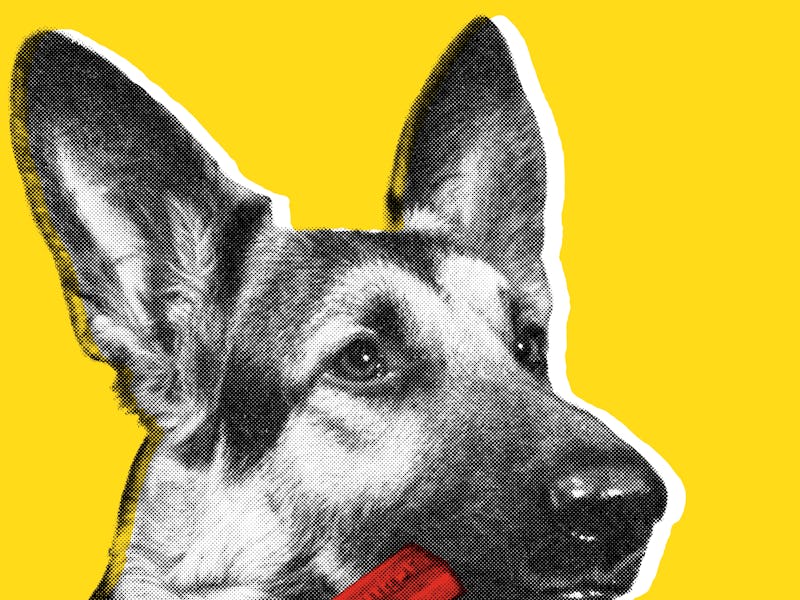What the first American dog diagnosed with Covid-19 means for your pet
A handful of pets have become infected with Covid-19 — but that doesn't mean they're a risk to humans.

On Tuesday, the United States Department of Agriculture announced that a pet dog in New York has been diagnosed with the virus that causes Covid-19. It's the first confirmed case of a dog with the virus in the United States.
After a German shepherd showed signs of respiratory illness, the dog was tested for SARS-CoV-2. The results turned up positive, according to the USDA's National Veterinary Services Laboratories.
A second dog in the same home had no signs of illness. However, it did test positive for Covid-19 antibodies, suggesting it was also exposed.
The case marks the second German shepherd to be officially diagnosed with the virus that causes Covid-19. The first was diagnosed in Hong Kong, where pet Pomeranian tested positive as well. These case reports were published in a May 14 study in the journal Nature.
Several pet cats in the US have been diagnosed with SARS-CoV-2, too, including two in New York and one in Minnesota. In April, several tigers and lions at the Bronx Zoo were diagnosed with the virus.
Researchers don't believe that there's a significant risk of animals passing the virus to humans — it's more likely that a human would pass along the disease to their pet. In the case of the recently diagnosed German shepherd, one of the dog's owners tested positive for Covid-19 and another had symptoms consistent with the virus, the USDA reported.
"SARS-CoV-2 infections have been reported in a small number of animals worldwide, mostly in animals that had close contact with a person who was sick with COVID-19," the USDA website states. "At this time, routine testing of animals is not recommended."
A Pomeranian in Hong Kong tested positive for SARS-CoV-2, researchers reported in May.
How to protect yourself and your pets from coronavirus:
To keep the humans and animals in your home safe, the US Centers for Disease Control recommends four practices:
- Don’t let pets interact with people or animals outside of your home.
- Keep cats indoors when possible.
- Walk dogs on a leash, staying 6 feet away from other people and animals.
- Avoid dog parks and other public places where people and dogs gather.
As Inverse previously reported, pet fur can act as a surface that spreads diseases, possibly including the novel coronavirus. Compared to materials like metal and plastic, however, research shows the virus doesn't last as long on surfaces that are porous — including cardboard, tissues, and probably fur. That's because the fatter layer that surrounds the virus, protecting it, dehydrates more quickly on porous materials, subsequently 'killing' the virus.
So while it's unlikely for your pet to get you sick, it's possible that letting your pup visit with other dogs or people in the park poses a risk. It's best to keep social distancing for both pets and people, experts say.
“Think of your pet as one more furry little family member,” Rebecca Archer, a veterinarian and clinical instructor at the University of Calgary, told Inverse in April. “Protect them in the same way you’d protect the rest of your household.”
Archer, who is part of a research team examining the risks surrounding pets and Covid-19, says it's key to keep using preventative hygiene practices — especially if you pet someone else's dog, or vice versa.
“If you’re out there and desperately need to pet someone else’s dog or cat, don’t touch your face and wash your hands,” Archer says. “Caution is the name of the game right now.”